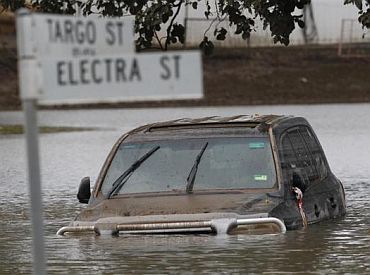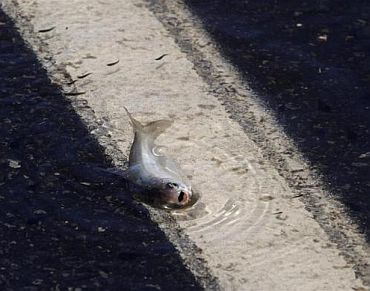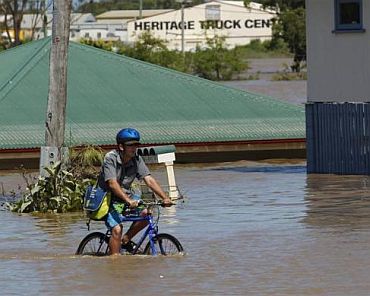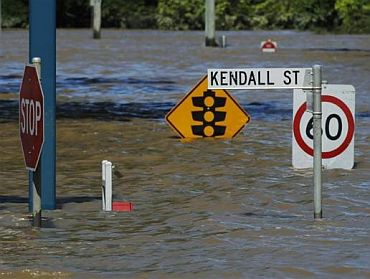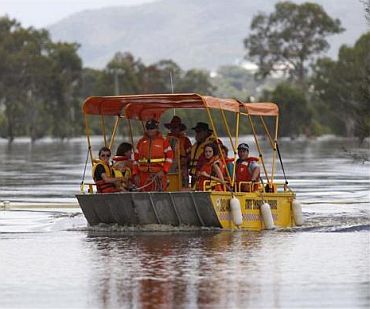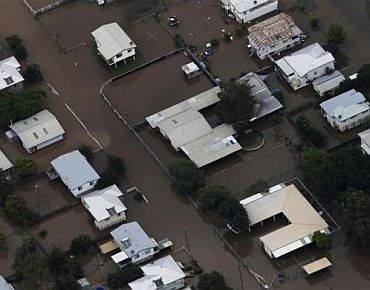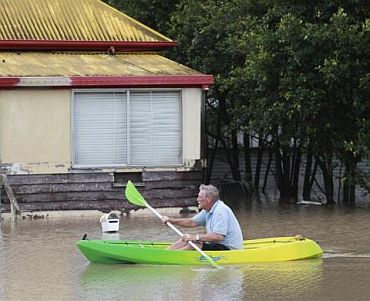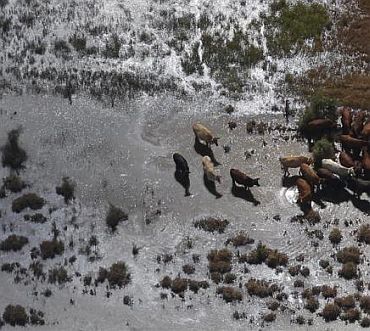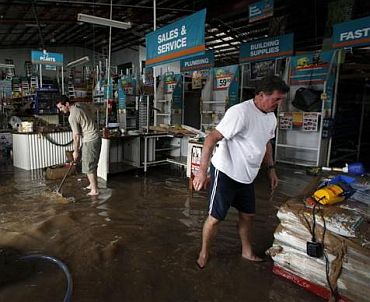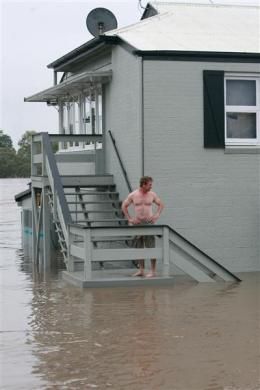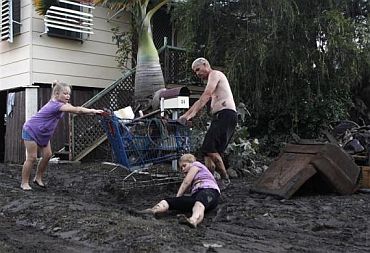 | « Back to article | Print this article |
Australia's worst flooding in 50 years
Floodwaters in Queensland are inching towards New South Wales, Australia's most populous state with authorities warning small communities south of the border to prepare for the deluge.
About 400 people in the towns of Goodooga, Weilmoringle and Angledool are facing the possibility of isolation when flood peaks flow into state's north later this month.
While there is no threat to homes but roads are expected to be cut, leaving residents stranded in a handful of communities and surrounding rural properties, according to the State Emergency Service.
Click on NEXT for more PHOTOS....
Australia's worst flooding in 50 years
Meanwhile, the weather bureau has predicted moderate to major flooding on the Culgoa, Bokhara, Birrie and Narran Rivers, swamping the region for four to six weeks.
The SES is urging people to prepare now.
"Its weeks away but these are very slow rising floods. Which means roads can be cut a week or more ahead of the flood peak and a week or more after," an SES spokesman said.
Australia's worst flooding in 50 years
"It's not out of the ordinary, these are decent sized floods but they are not exceptionally large like those in Queensland which are floods of record".
Queensland's flood crisis has inundated or isolated more than 20 towns and cities, with more than 200,000 people affected.
Australia's worst flooding in 50 years
The loss of life in the ongoing floods has prompted US Secretary of State Hillary Clinton to express condolences and extending support for providing assistance to its close ally.
Up to 200,000 people are estimated to have been hit by the fast-flowing waters that have inundated 22 rural towns in the country's northeast, across an area the size New South Wales.
Australia's worst flooding in 50 years
Up to 40 per cent of the town could be flooded in next two days, local officials said.
Australia's worst flooding in 50 years
The airport and road south to Brisbane were closed on Sunday, as were the rail line and road west from the city. The city was cut off on Monday and is expected to remain so for at least 10 days.
Australia's worst flooding in 50 years
"We're looking at alternative means of bringing supplies: barges, heavy-lift helicopters," mayor Brad Carter said, adding, "We might get a bit lean but I can't see this community running out or putting anyone at risk."
Australia's worst flooding in 50 years
Australia's worst flooding in 50 years
"It has got a long way to go."
Australia's worst flooding in 50 years
Meanwhile, a prominent water scientist has forecast widespread damage to the Great Barrier Reef as murky floodwaters surge into the sea off Queensland.
Jon Brodie, a senior research officer with the Australian Centre for Tropical Freshwater Research at James Cook University in Townsville, told a local newspaper The Age that the floods were a "major event" for the reef.
Australia's worst flooding in 50 years
"That water will slosh around in the reef for two years," he said.
Fresh water, often containing fertilisers and pesticides as runoff from farmland, kills coral. "It stays there and that is what is actually slowly killing the reef," he said.
Reefs around Great Keppel Island were already suffering from Fitzroy River discharges, he said. "A lot of coral will die."
